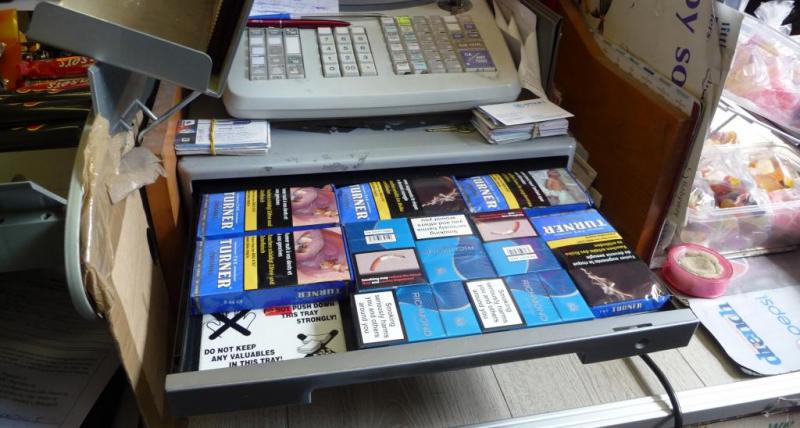
A pair of specially-trained pooches sniffed out illegal tobacco in two North Tyneside shops.
The dogs, which can detect counterfeit or illegal tobacco, were used in a joint operation by North Tyneside Council’s Trading Standards team, Northumbria Police and HM Revenue and Customs.
Based on intelligence received, seven stores – six in North Shields and one in Forest Hall – were searched on Thursday 3 May.
The dogs found illegal tobacco in two North Shields mini-markets. The seized items were a mixture of counterfeit products and those that had no duty paid.
The Trading Standards service, which is delivered for the council by Capita, is now conducting an investigation following the seizures.
Norma Redfearn CBE, Elected Mayor of North Tyneside, said: “I welcome this enforcement activity. The sale of illegal cigarettes is extremely dangerous because they are not checked and could contain anything. It undermines efforts to support people to quit smoking and offers a cheap source of tobacco that appeals to children and young people and those on low incomes.”
The dogs, Yoyo and Scamp, are working cocker spaniels trained to locate concealed tobacco in places such as ceilings, behind panels and under floorboards.
In the first store, they found 17 packets of cigarettes and 17 packets of hand rolling tobacco. Some of the products were stashed in a secret drawer built within the till. The remainder was within a hidden compartment built within a shelf that had to be unscrewed to reveal the tobacco.
In the second store, 16 packets of hand rolling tobacco was found. Two packets were under the shop counter and the rest under a shelf at the rear of the premises. Two bottles of vodka that had no duty paid was also seized.
Wendy Burke, North Tyneside Council’s Director of Public Health, said: “While just 16.4% of people in North Tyneside smoke, the figure masks huge socio-economic disparities in consumption, with a much greater proportion of people in some lower-income groups and certain ethnic minorities dependent on tobacco. Illegal tobacco increases this glaring health inequality because people on low incomes are its keenest customers. We hope these enforcement activities serve as a warning to other traders.”
